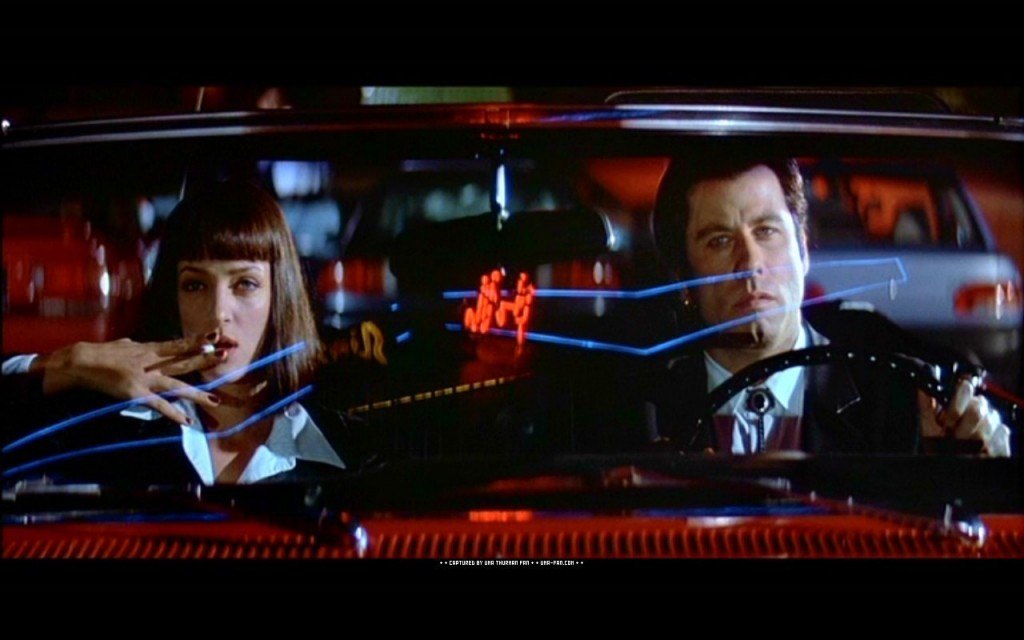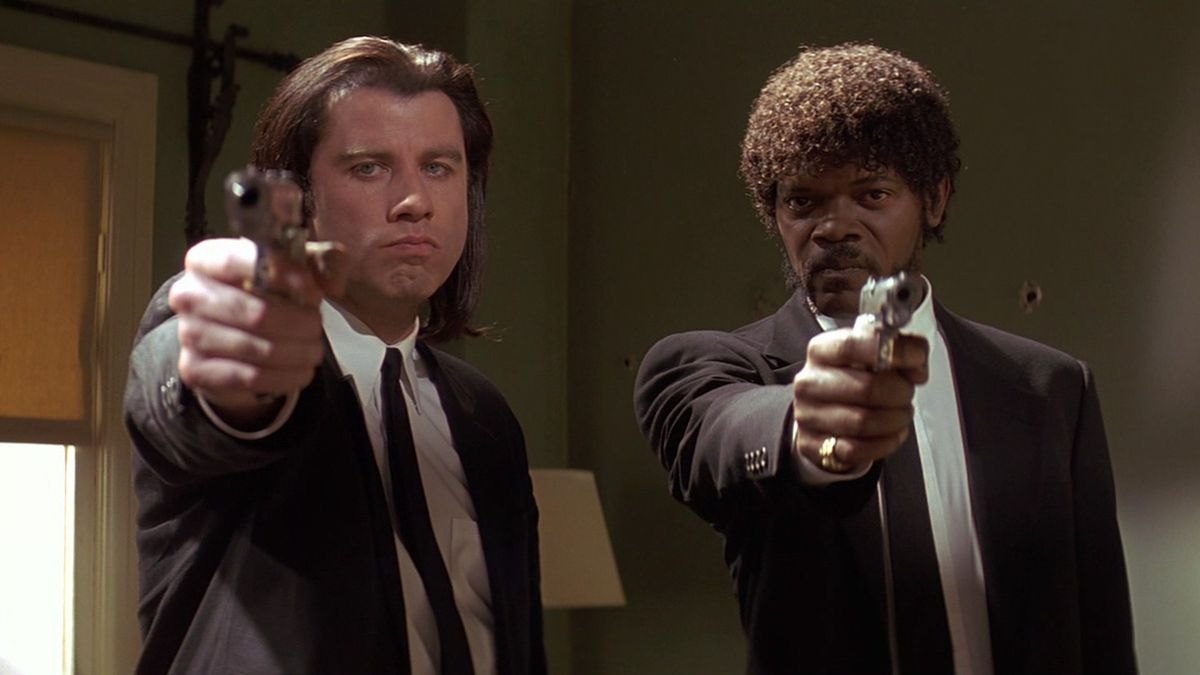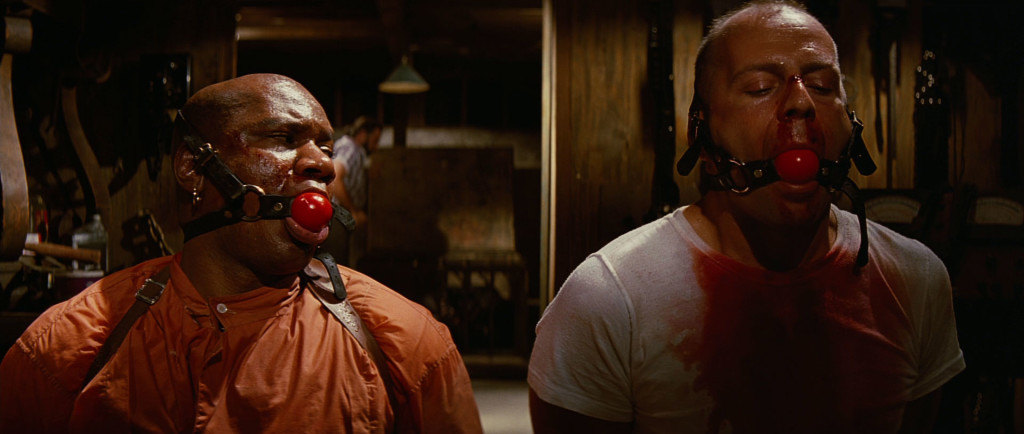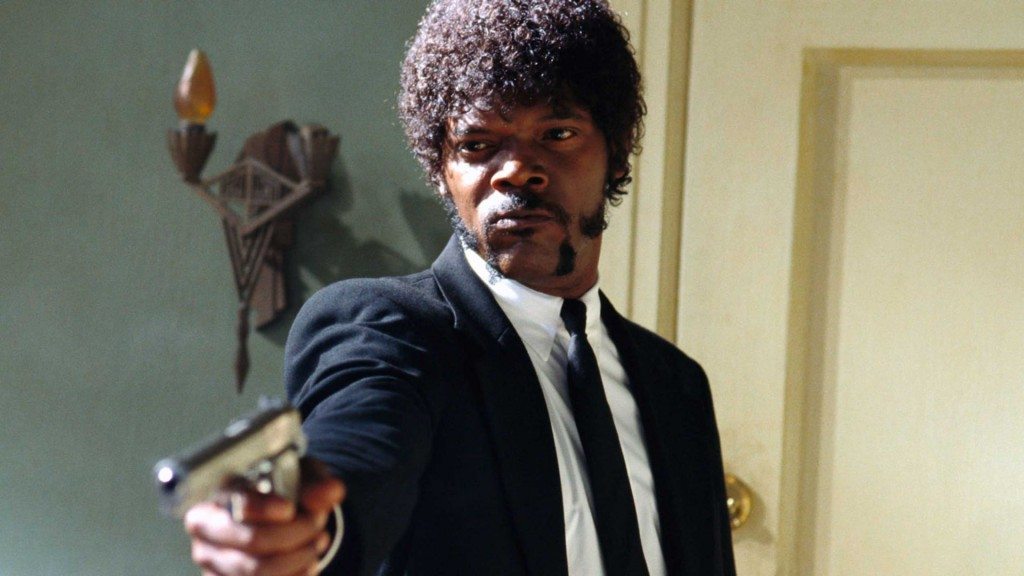What do you get when you cross a gunslinger with a samurai? The epitome of profanity and stylized violence. Quentin Tarantino is by far, the most eccentric director of this generation. A man, who can incorporate humor in the most morbid scenes in a film, and still experiment with its linearity, is bound to be an inductee in the hall of fame. After all, he’s given a whole new identity to slashers and the gore-fest that inevitably comes along with it. Even though the violence in his films can be called as “Comic-violence”, it is an inevitable part of his work, just as much are the dialogues that he himself gives genesis to. He is one of the very few directors who can write his own script and perfectly picture it on the screen. But that solely doesn’t make one a genius, what does make him a genius though, is his ability to converge a non-linear storyline, make violence look seductive, synchronize absurd scenes out of nowhere and give the perfect soundtrack to each and every frame of his films.
In 1994, Tarantino became a director-with-cult-following form director-with-some-talent. ‘Pulp Fiction’ was an onslaught of dialogues which took the regular day life of Los Angeles gangsters shooting and cursing their way through to gangster glory, and gave it a whole new ‘cult’ identity. It slammed Iron humor synced with profanity with the “in-your-face” attitude. The beauty of this film lies in its interconnection each and every story arc. Tarantino’s best non-linear mash-up till date, embedded with an incredible script, powerful performances from the actors and sublime yet flashy music, was built upon pride, deception, chaos and vengeance. Tarantino’s signature camera techniques like the trunk POV, elongated-single-person scene during dinner table conversations, the corpse POV, etc. earned the film a total of seven Academy Award nominations out of which Tarantino was the undisputed champion of Screenplay.

The two gangsters, Jules Winnfield (Samuel L Jackson) and Vincent Vega (John Travolta) are possibly the coolest yet the most complex characters ever written. “Shoot first, think later” and the knack for trouble is what they’re all about. Jules is more of a rational man than a hothead. His ruthless monologue and the sudden epiphany praises Tarantino’s at his versatile best whereas Vincent’s drug addiction, denial and recklessness makes him lethal as a gangster and an undying trouble’s favorite victim. Legend has it that Marcellus Wallace (Ving Rhames) threw Tony Rocky Horror into a glass mother****ing house for giving his wife, Mia Wallace, a foot massage. While Vincent was given the daunting task to take Mia Wallace (Uma Thurman) “out” on a “date”, Marcellus was busy teaching Butch (Bruce Willis) how pride only stings and that he should go down in the 5th.
The second chapter gives us an insight on Tarantino’s foot fetish, the aftermath of the madman overdose and how to give an adrenaline shot. Chaos and a cocaine rule the chemistry between Vince and Mia. Mia is a character who can make Vince, whose mental alertness is constantly being devoured by the cocain in his blood vessels, question his loyalty to Marcellus. She knows how to clear the line between her husband’s rational behaviour and reasoning and the outrageous myths that surround him and his wife. Does Vince fall in love? He was left too petrified to do that.

Now Butch, a professional boxer gives Marcellus the finger in the ring when he not only defeats but kills his opponent. “I want to know what it feels like to kill a man.” There’s nothing that butch holds dearer to his life than his dead father’s watch, which is what gives him the courage and determination to fight, and as fate would have it, the watch brings together Butch and Marcellus in a bitter-sweet reunion party hosted by the quietly homosexual Zed, his homosexual friend and the gimp. Butch shows that he’s a better man with his fists but with a samurai sword, he’s unstoppable.
With most of the characters given the satisfactory conclusion to their arcs, Tarantino brings us back to the house where Jules, ever so mercilessly, recites Ezekiel 25:17 before executing those who attempted to poison and destroy his brother. He would kill a thousand others who would try to do the same until god came down from heaven and stopped the bullets that would’ve otherwise put the gangsters to the grave.

A second chance is what Jules and Vincent had been given and all they had to do was to embrace it before clearing out on the mess that Vince, yet again, had created. Harvey Keitel as Winston Wolfe, a smart-savvy man, seemingly rescues Jules and Vince from what would appear to be an endless abyss of misery. Quentin Tarantino made yet another cameo appearance as “Jimmy”.
The intertwining of the seemingly parallel stories along with the element of divine intervention is what gives Pulp Fiction that very eerie feel. All in all, Pulp Fiction defined the character of an anti-hero and how everyone has their own ugly side of life. It is an essential for any movie buff. Quentin Tarantino’s greatest work till date, not to mention, the cornerstone of the world of cinema as a whole.
Also Read: ‘7 Life Lessons You Can Learn From ‘The Shawshank Redemption’


You must be logged in to post a comment.